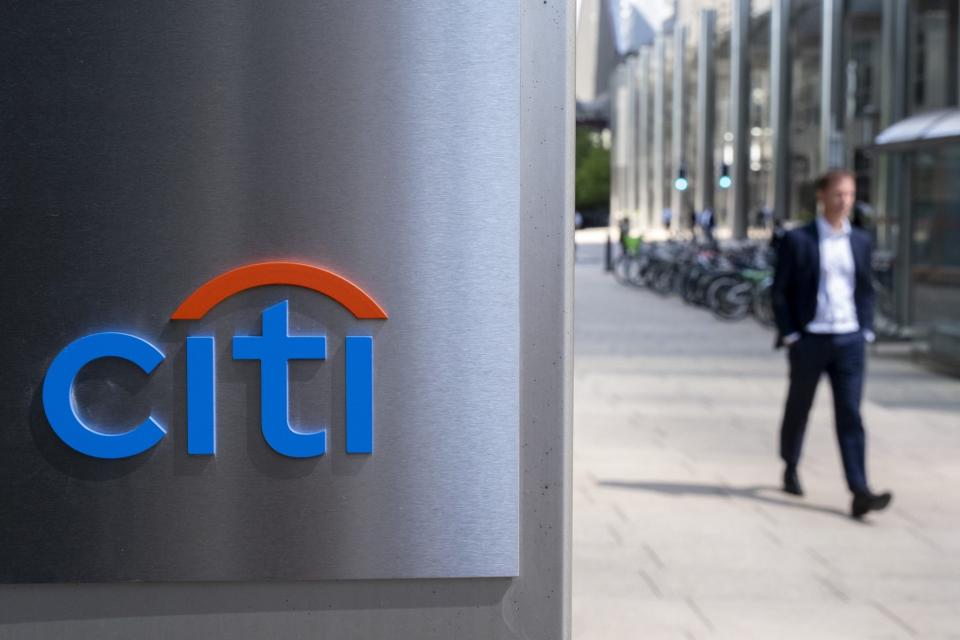Trader’s ‘fat finger’ costs Citi $79 million after U.K. fines bank over mistake that triggered 2022 market spasm

It’s officially one of the costliest typos ever: U.K. financial regulators just fined Citigroup Global Markets Ltd. (CGML) $79 million for a “fat-finger” trade one of its employees placed by accident, which caused a minor market meltdown in 2022.
Two years ago, a trader working for the Citi subsidiary over a long weekend in the U.K. went to place a routine trade, selling $58 million worth of equities for the bank’s institutional clients.
But while manually entering the order, the trader accidentally typed in a whopping $444 billion sale that went unnoticed for 15 minutes, instantly costing the bank $48 million and sparking a brief selloff that sent major European stock indices down more than 4%. The trader has not been identified.
“These failings led to over a billion pounds of erroneous orders being executed and risked creating a disorderly market,” wrote Steve Smart, an executive director of the U.K.’s Financial Conduct Authority (FCA), in a press release. “We expect firms to look at their own controls and ensure that they are appropriate given the speed and complexity of financial markets.”
Regulators zeroed in on Citi’s internal controls, which they argued should have prevented such a clear and massive error from making it all the way to the open market. As documented in a regulatory filing, the mistaken trade prompted a full 711 warning message pop-ups on the trader’s computer—but they were dismissed, and the trader went through the final confirmation page anyway without realizing the mistake.
“Well-designed and appropriate pop-ups enable traders to pause, reflect, and appropriately review their trading order before placement, therefore reducing the risk of placing an erroneous order,” wrote the FCA in a regulatory filing. “[Citi] failed to maintain and operate adequate preventative controls.”
Because many Citi staffers were out of office as a result of the U.K.’s early May bank holiday, the team in charge of flagging trading errors didn’t notice until it was too late. In total, 284 market orders were executed at least in part, with a market value of $1.4 billion.
Citi made no attempt to dispute the FCA’s findings, which earned them a 30% discount on the $39.8 million fine the regulator initially proposed. Another U.K. regulator, the Prudential Regulatory Authority, levied its own $38.8 million penalty.
After the incident, regulators investigated CGML and found fault with the firm’s procedures for vetting and flagging unusual trades. Regulators noted that “the breadth and significance of issues indicated substantial weaknesses in the control environment across [CGML], which fell below … expectations. The firm was instructed to remediate the identified issues in a timely and effective manner.”
A Citi spokesperson told Fortune that the firm has addressed deficiencies in its vetting protocols. “We immediately took steps to strengthen our systems and controls, and remain committed to ensuring full regulatory compliance.”
This story was originally featured on Fortune.com

 Yahoo Finance
Yahoo Finance 